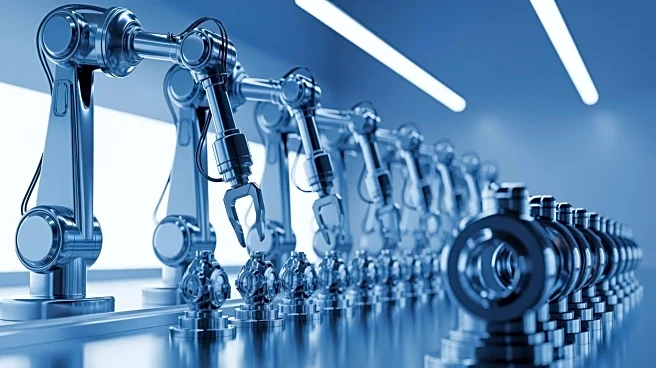What's Happening?
Tesla, led by Elon Musk, is pursuing the development of a humanoid robot named Optimus, designed to perform tasks traditionally done by humans. The robot aims to revolutionize industries by providing tireless,
unpaid labor, potentially transforming economic and societal structures. Tesla's focus on robotics reflects a broader industry trend, with other automakers exploring similar technologies.
Why It's Important?
The development of Optimus represents a significant shift in Tesla's strategy, moving beyond electric vehicles to embrace robotics. This initiative could have profound implications for labor markets, automation, and economic productivity. The potential for robots to perform complex tasks raises questions about the future of work and the ethical considerations of replacing human labor with machines.
What's Next?
As Tesla continues to develop Optimus, the company may face challenges in achieving the robot's intended capabilities. The integration of robotics into various industries could lead to increased automation and efficiency, but also spark debates about job displacement and the role of technology in society. Tesla's progress may influence other companies to accelerate their own robotics initiatives.
Beyond the Headlines
The pursuit of a robot workforce raises ethical and legal questions about the rights of workers and the responsibilities of companies. The potential for widespread automation could lead to significant societal changes, necessitating discussions about the future of employment and the balance between technological advancement and human welfare.









